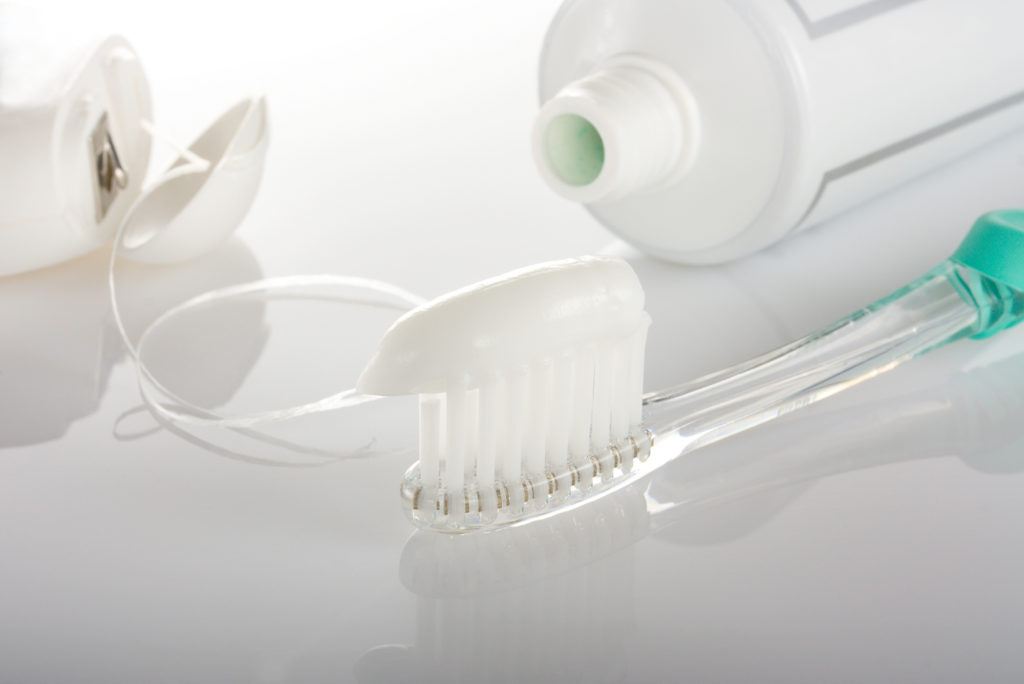
After a tooth extraction, it’s important for a blood clot to form in order to stop the bleeding and begin the healing process. That’s why we ask you to bite on a gauze pad for 30-45 minutes after the appointment. If the bleeding or oozing still persists, place another gauze pad and bite firmly for another 30 minutes. You may have to do this several times.
After the blood clot forms, it is important not to disturb or dislodge the clot as it aids healing. Do not rinse vigorously, suck on straws, smoke, drink alcohol or brush teeth next to the extraction site for 72 hours. These activities will dislodge or dissolve the clot and retard the healing process.
In addition, limit vigorous exercise for the next 24 hours as this will increase blood pressure and may cause more bleeding from the extraction site.
After tooth extractions, you may feel some pain and experience some swelling. By applying an ice pack or an unopened bag of frozen peas or corn to the area, you will minimize swelling. Usually swelling will subside after 48 hours.
Take pain medications as prescribed, but call our office if the medication doesn’t seem to be working. If antibiotics are prescribed, continue to take them for the indicated length of time, even if signs and symptoms of infection are gone.
Drink lots of fluid and eat nutritious soft food on the day of the extraction. You can eat normally as soon as you are comfortable.

It is important to resume your normal dental routine after 24 hours. This should include brushing and flossing your teeth at least once a day. Not only will this speed up the healing process, it will help keep your mouth fresh and clean!
Do not rinse your mouth for the first post-operative day, or while there is bleeding. After the first day, use a warm salt water rinse every 4 hours and following meals to flush out particles of food and debris that may lodge in the operated area. (One half teaspoon of salt in a glass of lukewarm water). After you have seen your dentist for denture adjustment, take out denture and rinse 3 to 4 times a day.
Use ice packs (externally) on the same side of the face as the operated area. Apply ice continuously (while you are awake) for the first 36 hours only.
For mild discomfort use aspirin, Tylenol or any similar medication; 2 tablets every 3-4 hours. Ibuprofen (Advil, Motrin) 200mg can be taken 2-3 tablets every 3-4 hours.
For severe pain use the prescription given to you. Please contact our team if the pain does not begin to subside in 2-4 days, or increases after 4 days. If an antibiotic has been prescribed, finish your prescription regardless of your symptoms.
A small amount of bleeding is to be expected following the operation. If bleeding occurs, place a gauze pad directly over the bleeding socket and apply biting pressure for 30 minutes. If bleeding continues, a moist tea bag can be used for 30 minutes. If bleeding occurs, avoid hot liquids, exercise, and elevate the head. If bleeding persists, call our office immediately. Do not remove immediate denture unless the bleeding is severe. Expect some oozing around the side of the denture.
Drink plenty of fluids. If many teeth have been extracted, the blood lost at this time needs to be replaced. In order to do this, drink at least six glasses of liquids the first day.
Restrict your diet to liquids and soft foods, which are comfortable for you to eat. As the wounds heal, you will be able to advance your diet.
Request your consultation
I understand the information disclosed in this form may be subject to re-disclosure and may no longer be protected by HIPAA privacy regulations and the HITECH Act.
Schedule your consultation and experience it for yourself.
I understand the information disclosed in this form may be subject to re-disclosure and may no longer be protected by HIPAA privacy regulations and the HITECH Act.

We have always exceeded the strict OSHA-mandated protocols to maintain a highly sterile environment within our offices. These guidelines were created to safeguard against the spread of severely contagious diseases such as tuberculosis and measles, and they are equally effective in managing the spread of influenza and coronavirus.
In addition we have added more rigorous disinfecting techniques and sterilize common areas more often. Our office has added a sanitizing system directly to our HVAC which “cleans” the air continuously for an added safety measure. We have minimized contact with staff as much as possible by utilizing the internet and phone contact when possible, and have added the option for some to do a virtual visit.
